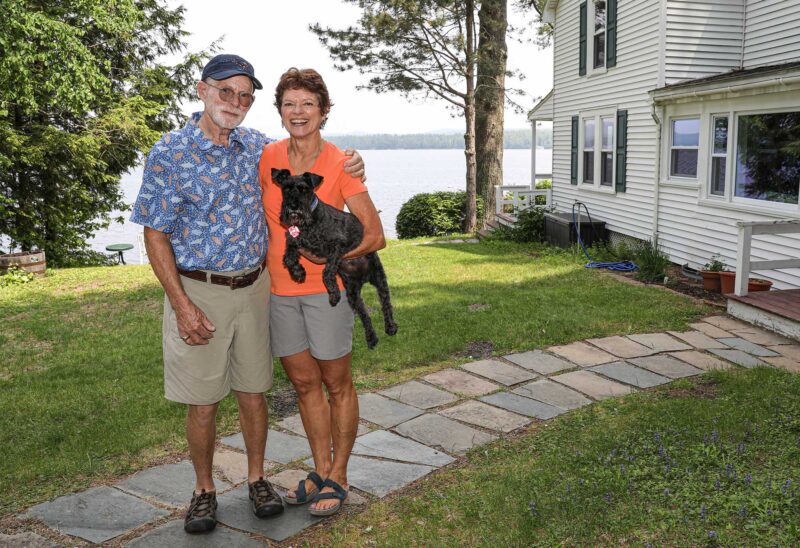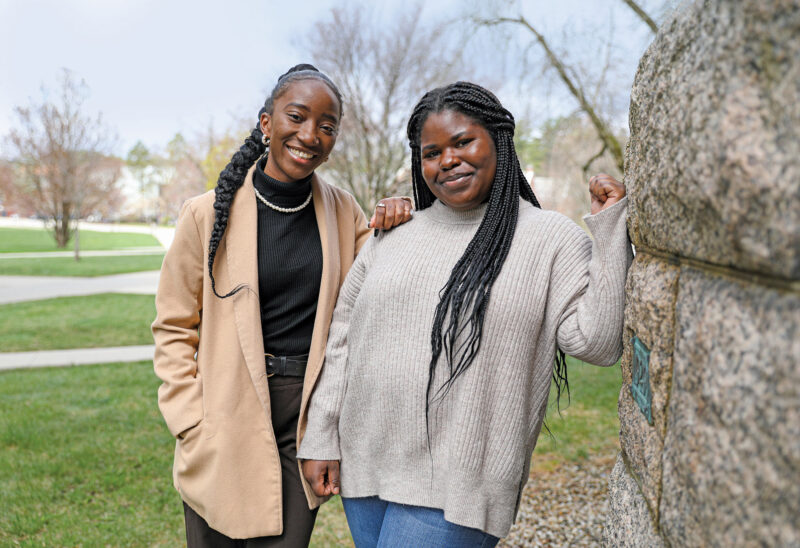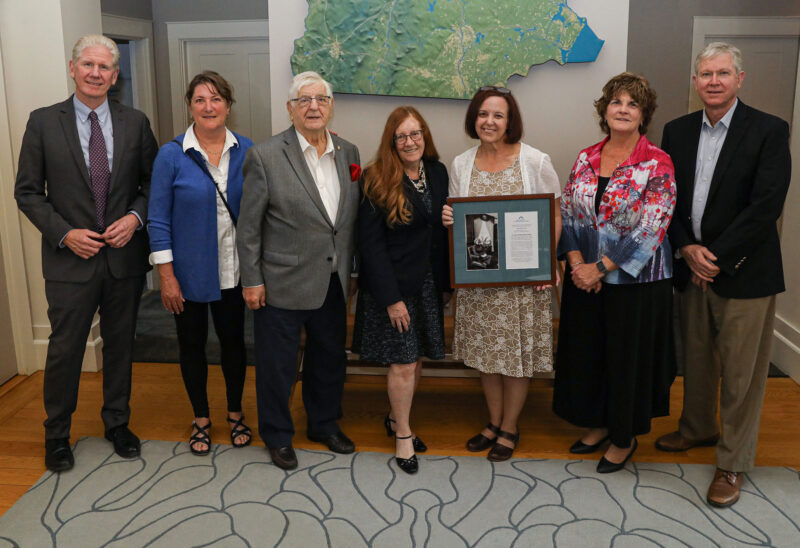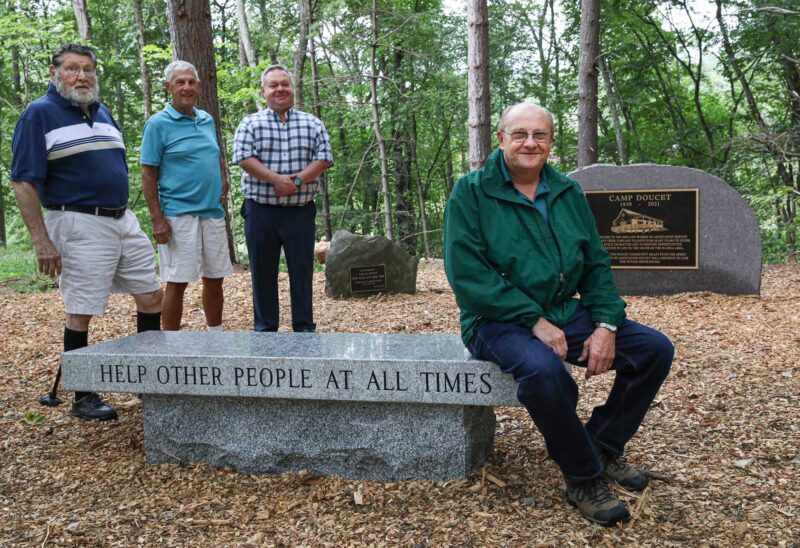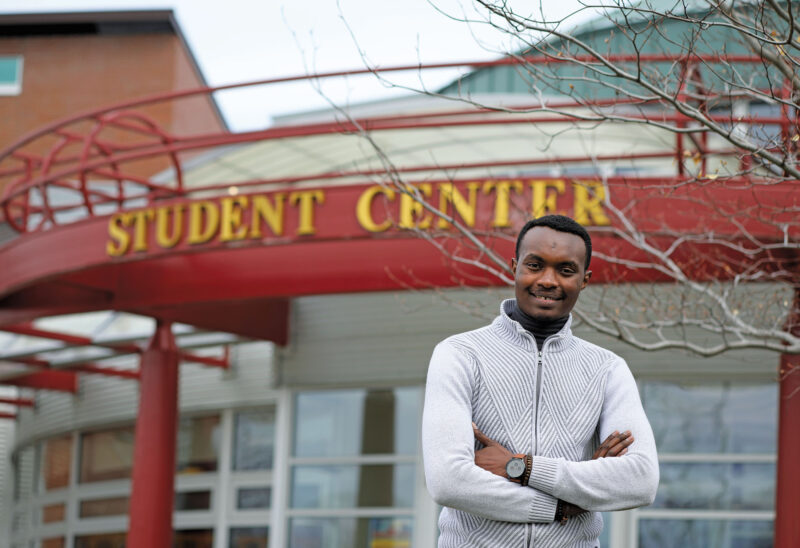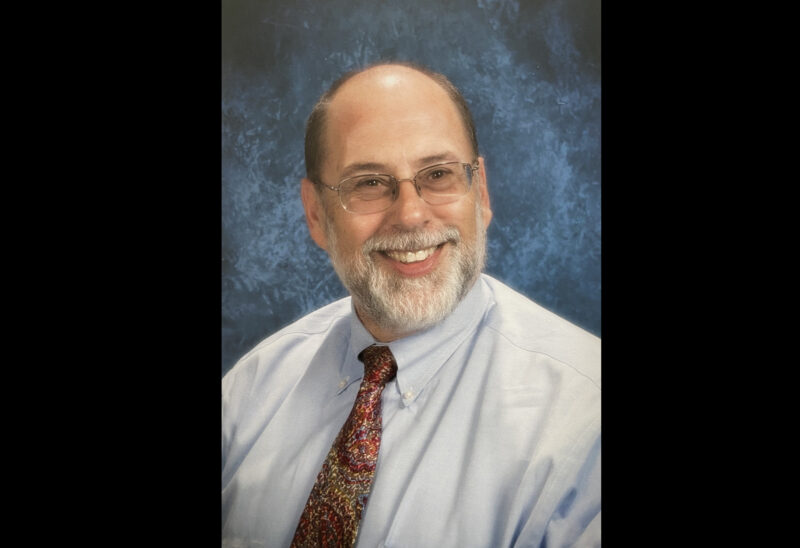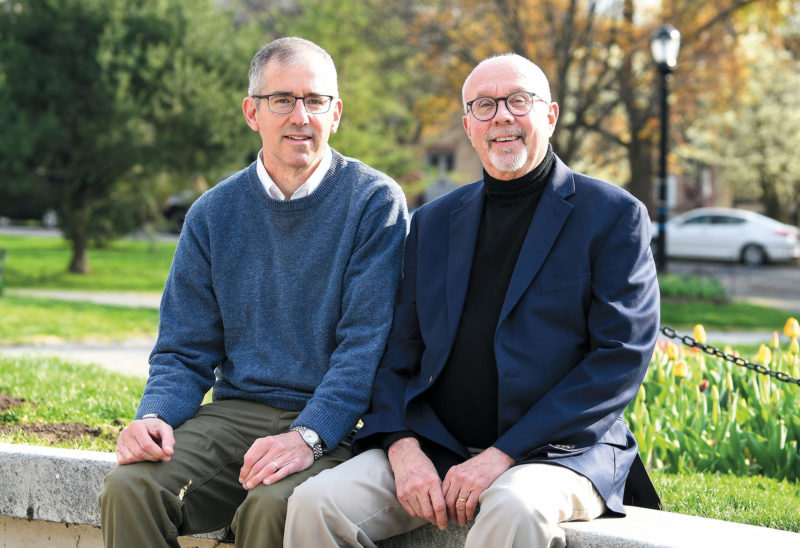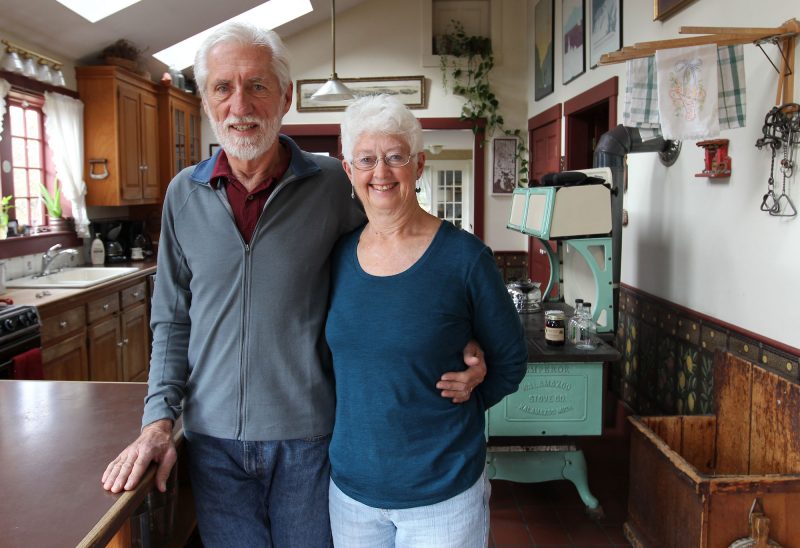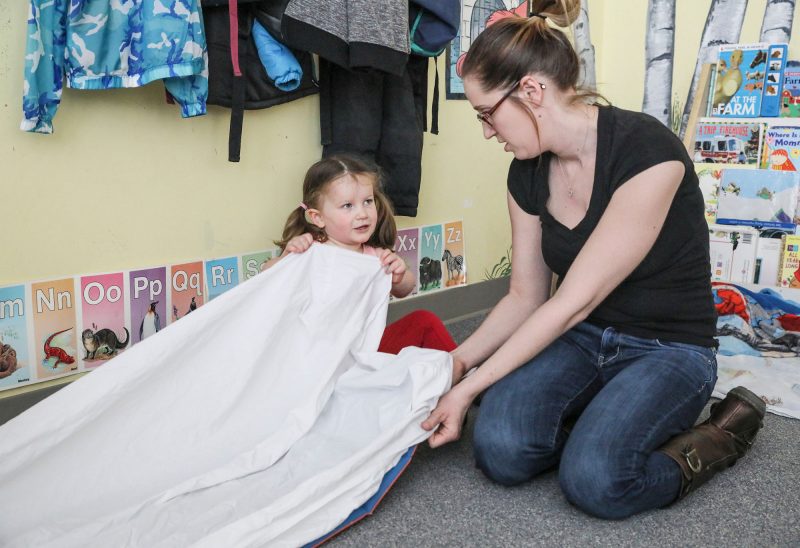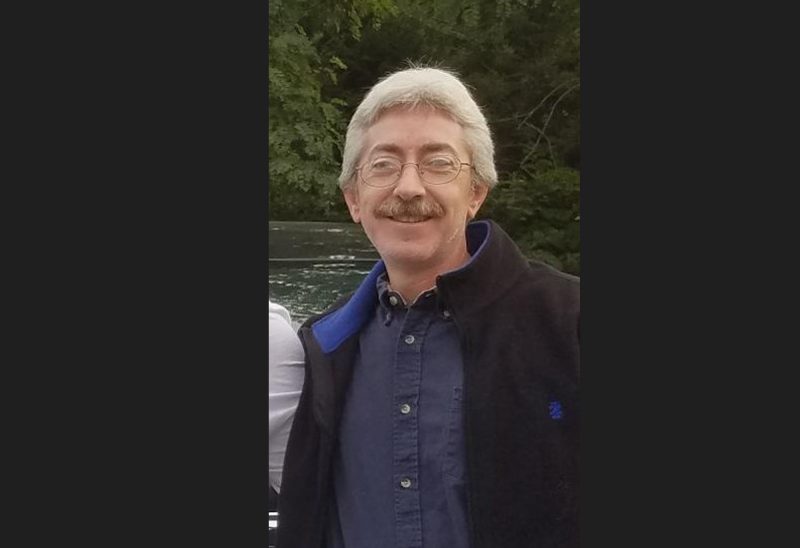Jim Curvey grew up in Pennsylvania coal country. His father started work at 12 years old as a “breaker boy” in a coal mine, picking slate and other impurities from coal. He worked 12-hour days at 50 cents an hour to help feed his family.
Jim’s father worked in the coal industry his whole life, until he died in a car accident when Jim was just 12 years old. Jim’s mother worked as a bookkeeper for a newspaper and a coal company.
When Jim graduated from high school, his mother told him: “You’re not going to lay around here like an old hound. You can either go in the Army, get a job, or go to college.”
He took his mother at her word — and chose college. His father had made an investment in a mine before his death that meant he had left enough to cover tuition.
During his first year at Villanova University, Jim found himself more than a little unprepared for the demands of college work. And he was surrounded by kids who had grown up in much different circumstances than he had.
“A big deal for me was to go to Allentown,” he said. “These kids had been to London.”
He buckled down and took advantage of opportunity. “So many people,” he said, helped him along the way.
“Education changed my life,” Jim said. “Had I not gone to Villanova, I would never be anywhere.”
Jim and Shirley Curvey had met in ninth grade, and married after he graduated from Villanova. Jim had a college degree and Shirley had $1,000. It was a start.
Jim Curvey built steadily on his education, experience and hard work. He started working in the Check Claims Division of the U.S. Department of the Treasury in 1959, and worked his way up to become head of human resources for the U.S. Department of Housing and Urban Development before taking a job in the private sector, with Chase Manhattan Bank. He rose to the position of vice president for human resources at Chase.
In 1982, he joined Fidelity Investments. Fifteen years later, he became president and chief operating officer.
He and Shirley started a scholarship program at Villanova — exclusively for students from the hardscrabble region of Pennsylvania where they had grown up. They added a travel fellowship — giving those same kids (who, like Jim, may have only been as far as Allentown) the opportunity to learn about the world by traveling.
During his tenure at Fidelity, Jim Curvey was also instrumental in the creation of Fidelity Charitable. He retired from daily operations in 2002, but remains on the board.
The Curveys, who have a home in Alton, wanted to do something to help kids in the Lakes Region.
Curvey had joined the board of directors at Brewster Academy, and was impressed by the way kids were prepared to be able to thrive in college and careers.
In 2009, Jim and Shirley gave a gift of land to Brewster Academy, and established the Curvey Scholar Program at Brewster, modeled after the Villanova program. Three Lakes Region students each year with a financial need receive four-year scholarships to attend the school. Size of the scholarships vary depending on financial need. Since the program was established, 24 students have gotten scholarships and graduates have gone on to top colleges and universities.
Jim Curvey said they hope the program will change young people’s lives — the same way education changed his.
In addition to their home in Alton, the Curveys owned the 2,086-acre Beaver Brook Forest, which they wanted to convert into charitable resources that would further help those young scholars, struggling families in the Lakes Region, and a variety of other causes. They gave the land to the Foundation, which sold it to a buyer who signed an intent agreement to conserve it, and the Society for the Protection of New Hampshire Forests is working on getting easements placed on the land. [Read more about the how the Beaver Brook project came together here.]

The “great heath” in Beaver Brook Forest.
Per the agreement with the Curveys, half of the proceeds from the sale of the land went into the family’s donor-advised fund at Fidelity, a quarter went into a new family donor-advised fund at the Foundation and the balance for unrestricted purposes at the Foundation.
“We were really pleased to be able to help Jim and Shirley do what they hoped: conserve the land, convert the resources to charitable dollars, and make significant contributions that will improve people’s lives,” said Foundation President and CEO Richard Ober.
Funding from the sale of the land is helping Families in Transition open a short-term emergency housing facility in Wolfeboro. Many struggling families in Carroll County are in acute need of temporary help. The Curveys plan to continue to contribute to support to the Wolfeboro facility after it opens.
A new fellowship program has been established at Brewster Academy, allowing those Curvey Scholars from the Lakes Region the opportunity to broaden their educations through travel in the U.S. and Canada.
And a portion of the unrestricted funds that came to the Foundation have been dedicated directly to “New Hampshire Tomorrow,” the Foundation’s initiative to boost opportunity for New Hampshire kids. The initiative works across four areas: Early childhood development; family and youth supports; substance use disorders prevention treatment and recovery; and education and career pathways.
Jim Curvey remembers what it was like to go to a grocery store and have to put things back because he didn’t have the money to pay for everything. When he thinks about his charitable philosophy, he thinks about his parents. His father, who would “walk three miles to church to put a nickel in the collection box,” and his mother, who would willingly share what she had with those less fortunate.
“It’s part of the family,” he said. “It’s how I grew up.”
The Charitable Foundation is committed to helping families achieve their philanthropic goals. For more information on how the Foundation can help, including with non-cash assets such as real estate, contact Laura Rauscher, Director of Philanthropy, at 800-464-6641 ext. 274 or ynhen.enhfpure@aups.bet.








